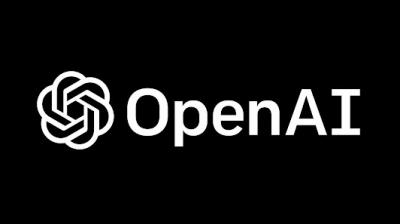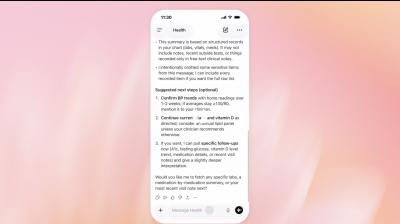From voice assistants to AI chatbots, users are bypassing traditional search and moving directly into conversations. AI-generated answers are cutting the need to click through, while discovery now happens in DMs, social feeds, and AI ecosystems. So where does that leave SEO?
In our August issue, we spoke with Samir Asher, founder and chief operating officer of Tonic Worldwide, and Abhinay Bhasin, senior vice president – product and technology at dentsu, to understand how to navigate this new phase.
Does traditional SEO remain effective when users increasingly turn to AI chatbots, platforms and virtual assistants instead of conventional search engines like Google?
Samir Asher (SA): Traditional SEO is still very much relevant, but its role is evolving. With AI chatbots and generative search tools providing direct answers, the influence of classic SEO signals such as backlinks and high-quality content is shifting more towards supporting AI knowledge bases rather than just attracting clicks from search results. Instead of only focusing on ranking high, brands now need to make sure their content is structured in a way that AI can easily reference and use.
Abhinay Bhasin (AB): Consumer research and product/service discovery are evolving rapidly in an artificial intelligence-powered algorithmic era. AI overviews, for example, in nearly half of Google searches and AI-powered chatbots like Perplexity and ChatGPT have over 700 million users. With algorithms today being smarter than ever, SEO is changing rapidly. The algorithms have now moved from discovery linked to matching keywords towards a more evolved era of context behind the consumer search, ushering in an era of answer engine optimisation. The traditional SEO playbook is simply changing to now account for content optimisation powered by more data-driven insights and content and context intelligence.
How should brands adapt their strategies to ensure discoverability as AI-generated summaries replace conventional search results?
SA: Brands need to move from ranking-focused to citation-focused thinking. They need to ask, if Google’s AI, ChatGPT, or Meta AI is summarising my brand, what would it say? Am I sending consistent, trustworthy signals about who we are and what we stand for? Content must be structured for both machines and humans. That means embracing video transcripts, podcast metadata, and image alt text because AI is pulling from everywhere, not just websites. Instead of chasing keyword breadth, focus on depth. Own a few topics completely and become the go-to source in your domain. The brands that win will be the ones shaping the summary, not reacting to it.
AB: Brands today need to optimise content creation to solve the context of consumer research and search. Answer Engine Optimisation (AEO) and GEO (Generative Engine Optimisation) require more conversational-led and educative content serving relevant answers and informative guides to consumers, backed by the intent of the consumer’s discovery journey. As we break through the AI static with an internet flooded with AI-generated content, brands should focus on creating high-quality content that addresses consumer needs in topics never covered before – making the brand stand out and increasing the likelihood of being picked up by search generative experiences that power discovery in an AI-powered era.
Are keywords and backlinks still critical, or should marketers shift focus to optimising for AI prompts and social media platforms?
SA: Keywords and backlinks aren’t going anywhere because they’re still how AI systems figure out which sources to trust, but we also need to optimise for how people talk to AI assistants, not just how they type searches. In India, especially, social platforms have become discovery engines, so brands need to meet people where they are with localised, shareable content. What’s interesting is how PR has become this secret weapon in the AI era because when credible publications write about your brand, that creates exactly the kind of authoritative content that AI systems love to reference. PR and SEO are no longer competing; they’re working together to build a comprehensive digital presence that succeeds in an AI-first world.
AB: While backlinks is a strategy, in an evolving discovery landscape, the focus should be on creating high-quality content that addresses context, consumer needs and builds credibility. Brands should consider focusing more on behavioural and cultural signals of consumer behaviour to sharpen their content strategy, which, as a byproduct, will result in better discoverability by answer engines.
Can SEO strategies evolve to thrive across diverse AI platforms, or is the discipline at risk of becoming obsolete?
SA: SEO is not going to become obsolete. It is evolving into something richer. This is no longer just about search engine optimisation. It is semantic optimisation. It is about making your brand discoverable wherever people ask questions, whether in a chatbot, voice assistant, or message thread. The new skillset is a blend of storytelling, structured data, and understanding how AI systems interpret and serve information. Brands need to write for both humans and machines. Clear answers. Context-rich snippets. Proper markup. This is not the end of SEO. It is the start of something more intelligent, more multidimensional, and frankly more interesting than before.
AB: SEO strategies today need to evolve from focusing on links and keyword matches to relevancy and context. A more holistic approach to content creation, powered by consumer intelligence from platforms, behavioural and intent signals, can help brands today sift through information like never before to identify areas of consumer interest – aiding brands to create more relevant content. SEO itself is branching out into AEO and GEO, serving a huge opportunity for more relevant discovery, enabling better understanding of consumer search intent and showing up as a brand in a more meaningful way.
Which brands will gain the advantage: those that reinforce traditional SEO practices or those that proactively embrace AI-first content strategies?
SA: The advantage will go to brands that move beyond the either-or mindset. Success lies in blending strong SEO fundamentals with a willingness to experiment across AI-first platforms. These are the brands that see SEO not as a checklist but as an ongoing conversation, one that now spans Google, ChatGPT, Instagram Reels, Quora and Reddit threads, and every space where discovery is happening. What matters most hasn’t changed: be helpful, be visible, be human. The difference is in how and where that value gets delivered. The methods are evolving, but the mission stays the same. The brands that understand this aren’t choosing between traditional SEO and AI optimisation; they’re mastering both because they recognise that today’s consumers don’t live in just one ecosystem. They’re everywhere, asking questions everywhere, and the brands that can show up meaningfully across all those touchpoints are the ones that’ll win.
AB: Brands that proactively adopt newer ways of discovery and are more experimental and early adopters will have more to gain. Consumer behaviour itself is changing with the rise and adoption of answer engines to solve for their educational and discovery journeys. While AI governance and norms need to be adhered to, there is a huge headroom for growth when it comes to adopting platforms that assist in providing intelligence to generate smarter and more relevant content in an algorithmic era.
This article first appeared in the August issue of Manifest. Get your copy here.

.jpg)











